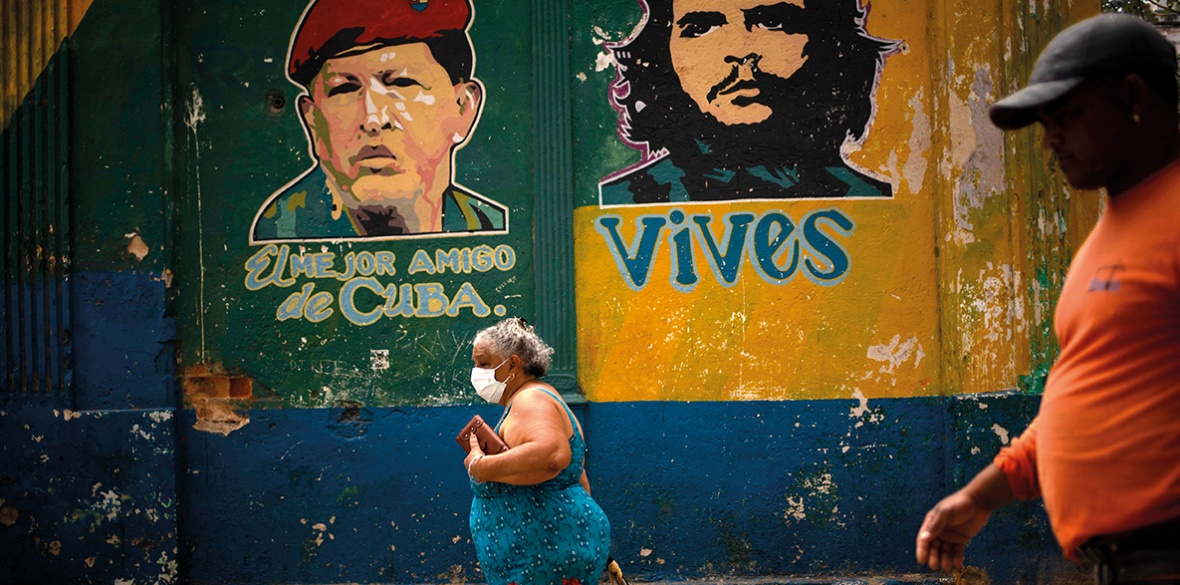This is the last article you can read this month
You can read more article this month
You can read more articles this month
Sorry your limit is up for this month
Reset on:
Please help support the Morning Star by subscribing here
A RECENT report published in BMJ Paediatrics Open, the official journal of the British Medical Journal and Royal College of Paediatrics and Child Health, states that in the “provision of healthcare and solidarity, the world can learn a lot from Cuba.”
Medical experts from Cuba, Bolivia, Italy and Britain collaborated to write Cuba: Solidarity, Ebola and Covid-19, which studies the nation’s “approach to providing healthcare assistance to people in other countries.”
Using the examples of Ebola and Covid-19, the research shows how Cuba’s response to global health crisis has been one of collaboration and sharing expertise, consisitent with its “political philosophy that health is a human right for all people in the world.”
“Cubans have always understood the value of solidarity,” state the authors, despite the impact of the US blockade for almost 60 years.
“Cuba has always tried to help other countries following natural disasters.
“After an earthquake in Chile in 1960, Cuba sent doctors to help. Since then, Cuban health professionals, teachers and engineers have volunteered to work in over 70 different countries.”
In the early days of the revolution health collaboration focused on emergency response, but since then “they [have] expanded their collaboration to facilitate primary care and also train doctors.”
The report points to the fact that Cuba’s free education has resulted in the country having one of the highest numbers of medical doctors per head of population (84.8 per 10,000).
Despite this, the island is currently training more than 60,000 medical students, with 8-10,000 students anticipating graduating each year, including 8,000 overseas students training at the Latin American School of Medicine.
The health experts also highlight the recent pressure from the US to discredit and expel Cuban doctors by launching a propaganda “campaign of ‘fake news’ (disinformation),” about payment and pressure to volunteer.
“Initially, Cuba covered all the costs of their health professionals working overseas.
“However, as international collaboration increased, it became apparent that some countries could contribute financially.
“It is estimated that there were over 140,000 Cuban professionals working in 67 countries between 2011 and 2016.
“Over one-third of the countries (30) paid Cuba for their assistance and just under one-third (20) were paid for fully by Cuba. In the remaining 17 countries, the costs were shared,” says the report.
Highlighting Cuba’s response to the Ebola crisis in Guinea, Liberia and Sierra Leone, the reports shows how in the six months that Cubans were working in these countries, “the fatality rate in the emergency treatment centres was reduced from 80-90 per cent to 24 per cent by providing supportive treatment.”
Cuban doctors were sent to west Africa in response to an appeal from the World Health Organisation.
More than 10,000 volunteered for the brigade, of whom 465 were selected for training at the Pedro Kouri Institute of Tropical Medicine in Havana.
During the Covid-19 pandemic, Cuba also sent more than 4,000 members of the Henry Reeve International Medical Brigade to 40 countries to help fight the virus, including two brigades of 90 doctors, nurses and technicians to Crema and Turin in Italy.
“Italy is the third-largest economy in the European Union and the request to Cuba for medical assistance is unique and reflects both the scale of the Covid-19 pandemic and the expertise of Cuba in sending medical brigades overseas,” note the academics.
A further example of Cuba’s solidarity is its development of vaccines and medicines that have made significant contributions to science and public health.
BioCubaFarma, which produces eight of the 12 vaccines of the national immunisation programme, is currently working on five potential vaccines against Covid-19.
Two of these, Soberana 2 and Abdala, are currently being used to immunise the Cuban population.
Pandemics are a common challenge faced by human beings in an age of globalisation.
This has highlighted an important principle: we are all in this together and co-operation is a necessity not a choice.
Hence, in relation to the provision of healthcare and solidarity, one can learn a lot from Cuba, a country that time after time globalises solidarity.
The full report is available to read on the British Medical Journal Paediatrics Open website at mstar.link/BMJPOCuba.










